Psyllium Husk: The Wonder Ingredient You Didn’t Know You Needed
What is psyllium husk? What is psyllium husk powder? What are the benefits of psyllium husk and how do you use psyllium? Find the answers to these questions and more in this post all about psyllium husk.
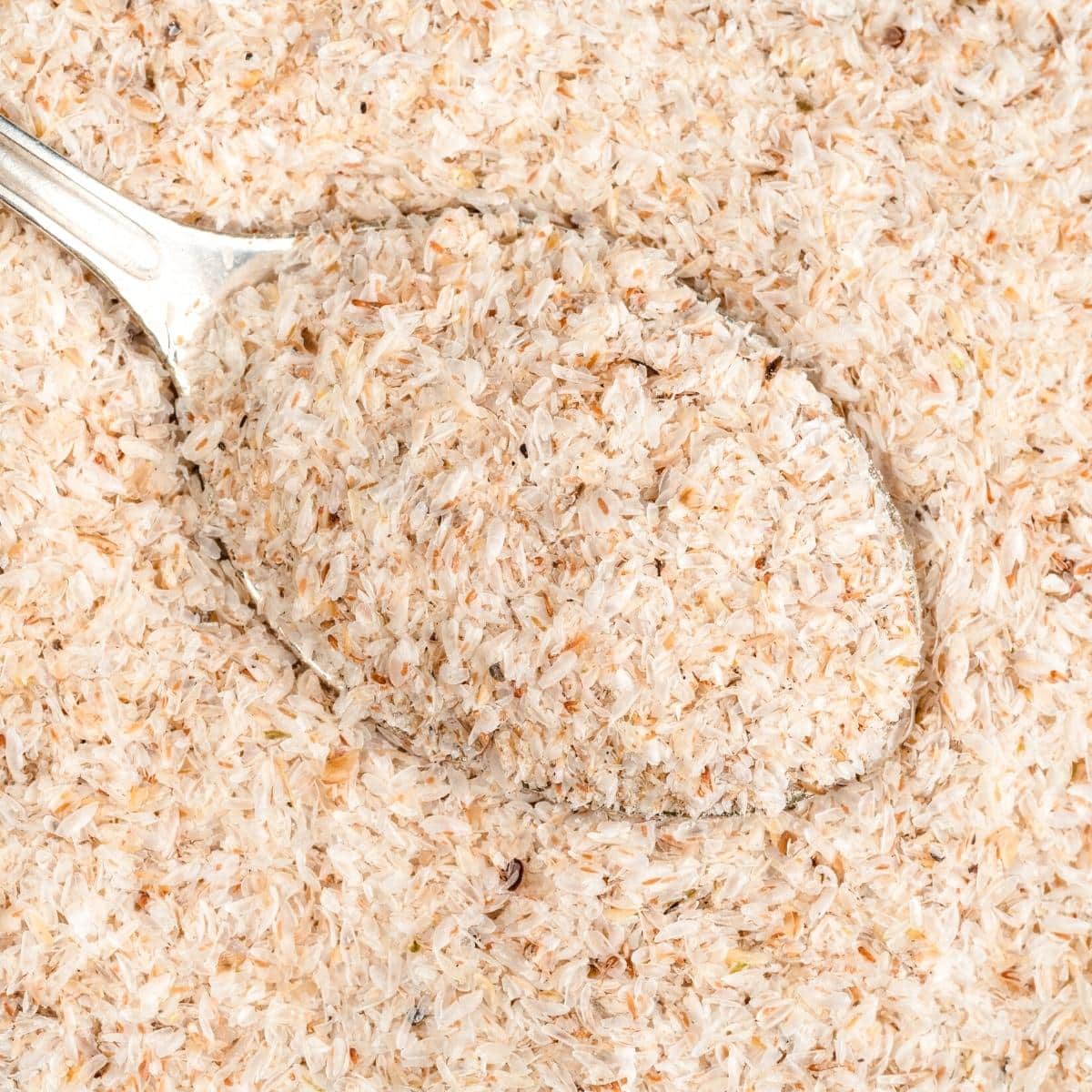
What is Psyllium Husk?
Chances are, you’ve probably never heard of psyllium husk. But this little-known ingredient is actually a powerhouse in the kitchen, and it’s time you learn all about it!
Psyllium husk is a grain-like substance that comes from the psyllium plant (Plantago ovata), which is native to India. The whole husks are the outer shell of the psyllium seed, and they’re often ground into a powder.
Psyllium husk powder is often used as a thickener or binding agent in recipes, and it’s especially popular in gluten-free baking. It’s also a popular vegan egg replacement since it has the ability to mimic the properties of eggs when combined with water. But psyllium husk isn’t just for baking—it can also be used to make homemade jams and jellies, as well as homemade nut butters and flours.
Psyllium husk is also well known as a natural stool softener and reliever of constipation due to its laxative effects in large amounts. It is the main ingredient in Metamucil and other fiber supplements.
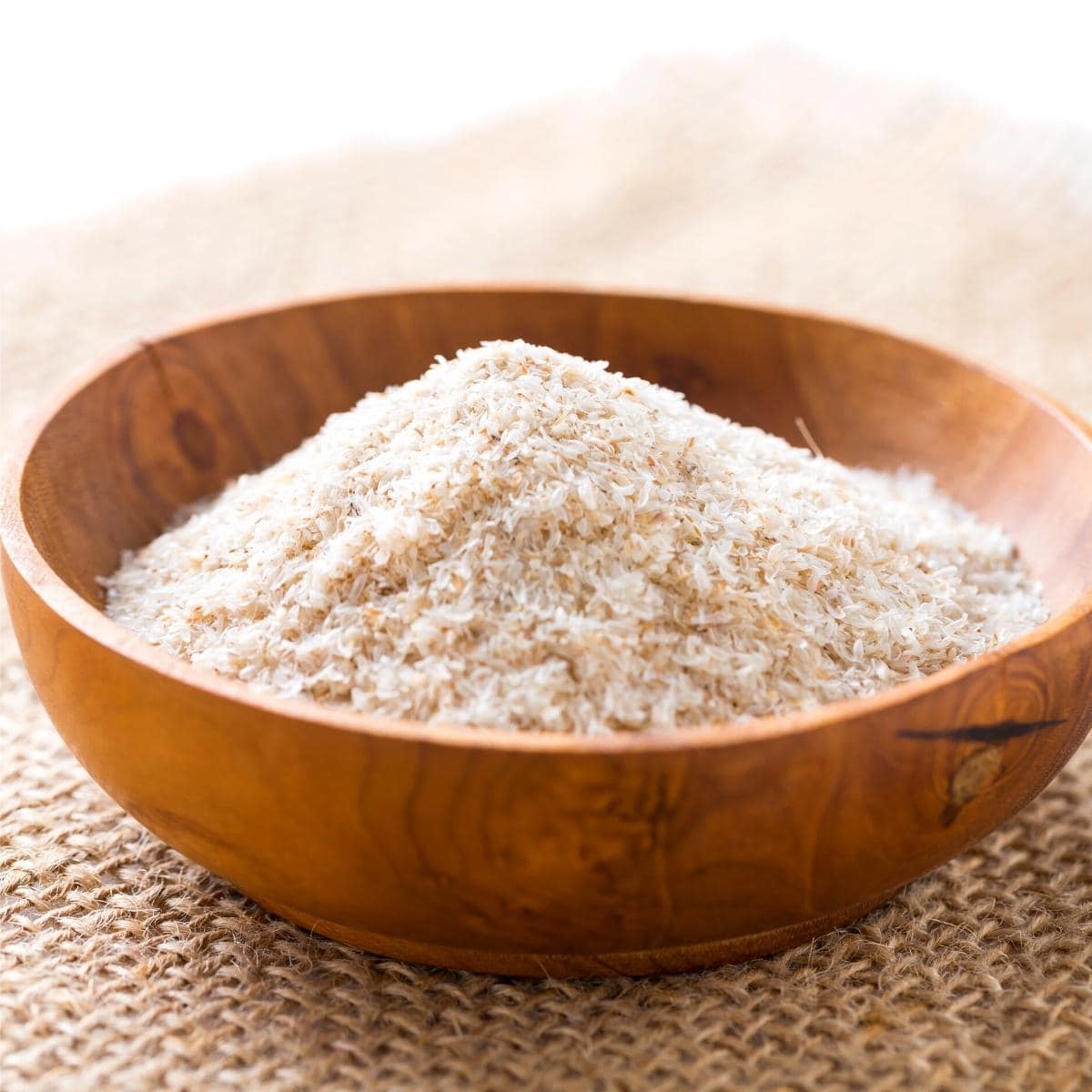
Psyllium Husk Benefits
For one thing, it’s a good source of dietary fiber. In fact, just one tablespoon of psyllium husk powder contains around 7 grams of fiber—that’s more than 20% of your recommended daily intake! Psyllium husk is also low in calories and fat, making it a great addition to any diet. And because it’s so high in soluble fiber, psyllium husk can also help regulate digestion and promote gut health. It’s also great at regulating blood sugar levels, making it a great addition to a diabetes-friendly diet.
Is psyllium husk gluten-free?
Psyllium husk is a 100% natural, plant-based product that is completely gluten-free. This makes it a great alternative for those with celiac disease or non-celiac gluten sensitivity. It is also naturally low-carb and keto diet friendly.
Is psyllium husk vegan?
Psyllium seed husk is also vegan, making it a great plant-based alternative to other sources of dietary fiber.
How often can you take psyllium husk?
There is no set recommended dosage for psyllium husk, as it can be taken as needed. However, most experts recommend taking no more than 30 grams of psyllium per day. If you’re new to taking psyllium husk, start with a smaller dose and increase gradually as needed.
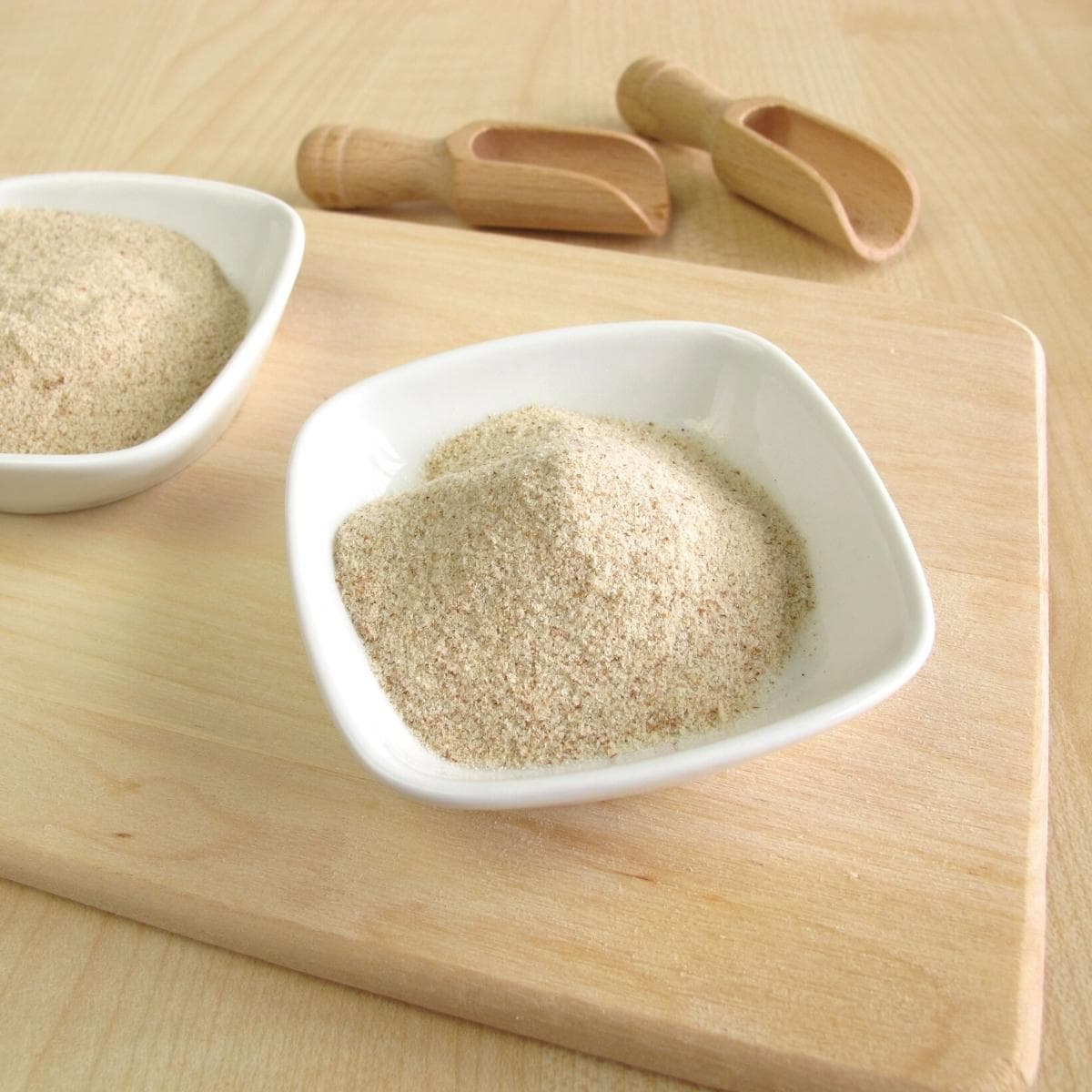
Whole Psyllium Husk vs Psyllium Husk Powder
Psyllium husk powder is made from ground whole psyllium husks. It’s a bit finer than whole psyllium husk and dissolves more easily in liquids. Psyllium husk powder is also a bit more versatile—you can use it to thicken sauces and soups, or as a binding agent in recipes like veggie meatloaf or veggie burgers.
How to Make Psyllium Husk Powder
If you can’t find psyllium husk powder at your local store, you can easily make it at home. Simply grind whole psyllium husks in a coffee grinder or blender until they form a fine powder. Be sure to clean the grinder or blender thoroughly afterward.
How to Use Psyllium Husk
Psyllium husk powder can be added to liquids to create a gel-like substance that can be used in place of eggs or dairy products in recipes. It can also be added to dry ingredients to create a binding agent that helps hold everything together (think: pancakes or waffles). You can even use psyllium husk powder to thicken soups or stews—just add a teaspoon or two until you reach your desired consistency.
If you’re using psyllium husk for the first time, start by adding 1/2 teaspoon to your recipe and increasing from there as needed. And remember, because psyllium husk absorbs liquid, you’ll need to add additional liquid (like water or milk) when using it in place of eggs or dairy products. Now that you know all about this amazing ingredient, it’s time to get cooking!
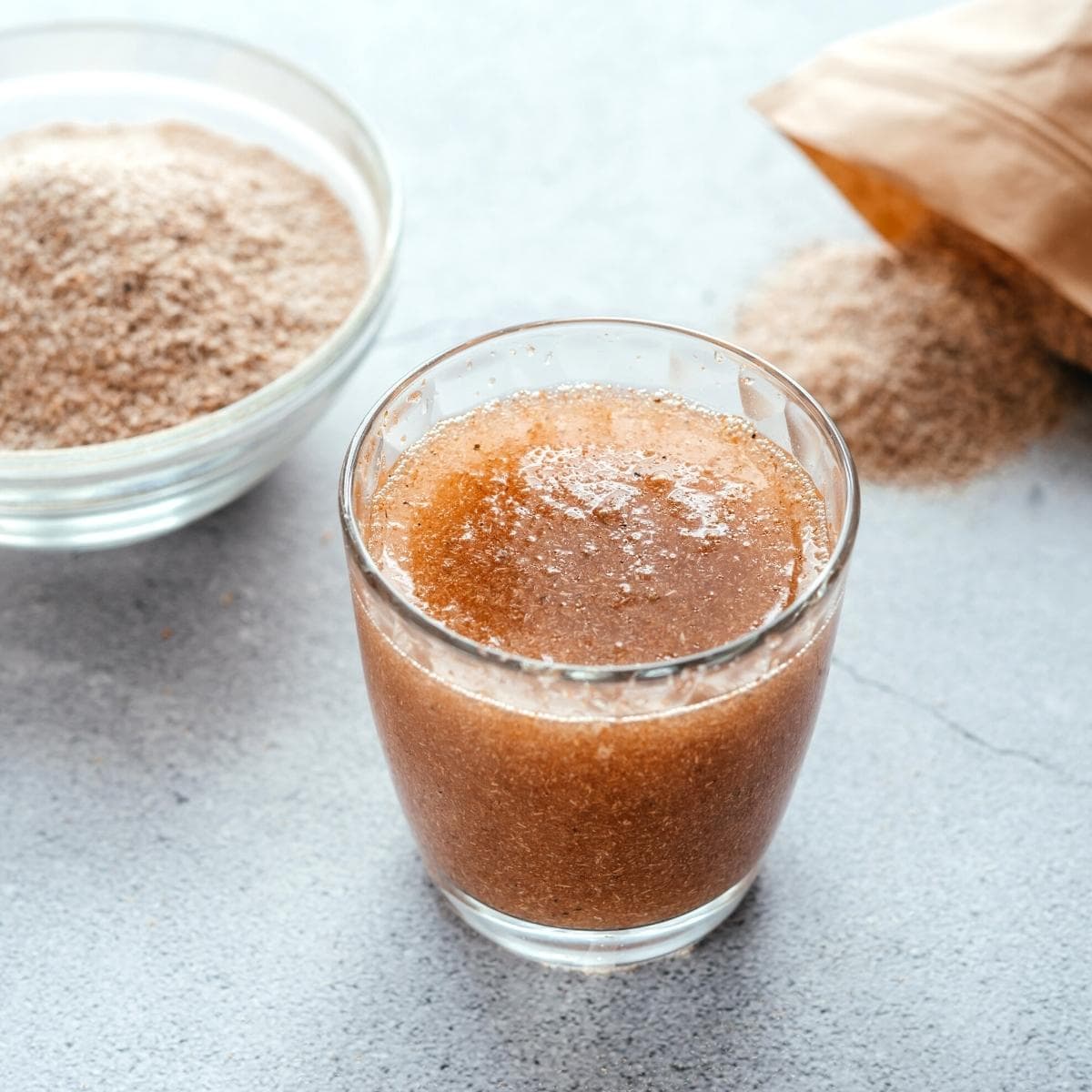
Psyllium Husk Recipes
One of the great things about psyllium husk is that it’s so versatile. It can be added to all sorts of recipes, both sweet and savory. Here are a few ideas to get you started:
- Add psyllium husk to your favorite smoothie recipe for an extra boost of fiber.
- Use as a binding agent in gluten-free and vegan bread recipes.
- Use in sweet treats like gluten-free vegan chocolate chip cookies for additional moisture.
- To add great texture to air-fried baked goods like these air fryer hush puppies.
Conclusion
As you can see, psyllium husk is a versatile ingredient that can be used in a variety of recipes—not just baking! It is well worth being a part of a diet. So next time you’re looking for an egg replacement or binding agent, reach for some psyllium husk powder and give it a try. Your taste buds (and gut!) will thank you!
Disclaimer
This post is for informational purposes only. Always consult a healthcare professional before using psyllium husk to treat any medical conditions!
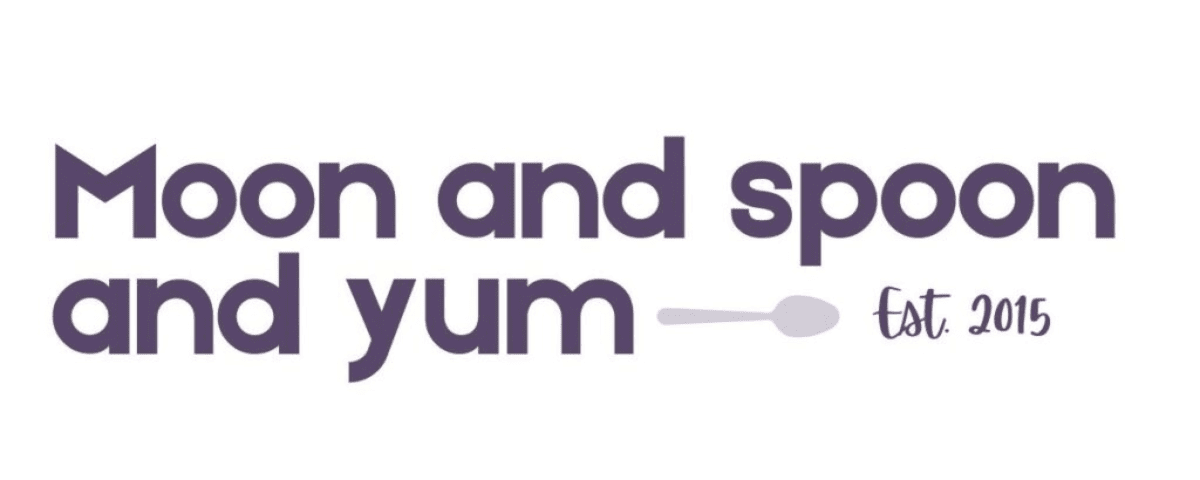
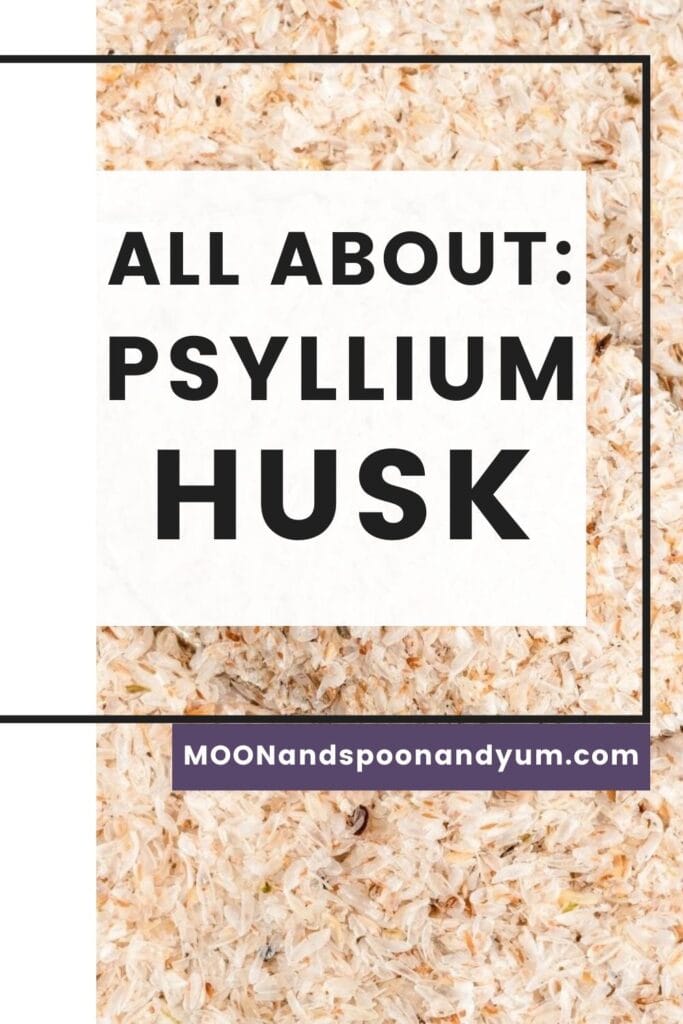
Thank you so much for this very helpful info!
So interesting! Thank you for this great and informative post.
My gastroenterologist actually has me take psyllium husk daily because I have stomach issues. It helps with everything, and it keeps me feeling full so I don’t eat as much either! I always take it in pill form, but adding it to recipes is a great idea!
I’d never heard of it but this was such an informative post!
I often get asked about egg replacements, so thank you so much for this great informative article! Will have to try it out myself!